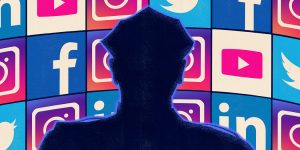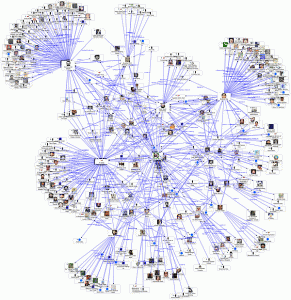Social Media Analytics for Security : Freedom of Speech vs Government Surveillance
By Nitin Pillai | October 29, 2021

Introduction
The U.S. Department of Homeland Security (DHS) U.S. Customs and Border Protection (CBP) takes steps to ensure the safety of its facilities and personnel from natural disasters, threats of violence, and other harmful events and activities. For aiding these efforts, CBP personnel monitor publicly available social media to provide situational awareness and to monitor potential threats or dangers to CBP personnel and facility operators. CBP may collect publicly available information posted on social media sites to create reports and disseminate information related to personnel and facility safety. CBP conducted a Privacy Impact Assessment (PIA) because, as part of this initiative, CBP may incidentally collect, maintain, and disseminate personally identifiable information (PII) over the course of these activities.
Social Media Surveillance’s impact on Privacy

The Privacy Impact Assessment (PIA) states that CBP searches public social media posts to bolster the agency’s “situational awareness”—which includes identifying “natural disasters, threats of violence, and other harmful events and activities” that may threaten the safety of CBP personnel or facilities, including ports of entry. The PIA aims to inform the public of privacy and related free speech risks associated with CBP’s collection of personally identifiable information (PII) when monitoring social media. CBP claims it only collects PII associated with social media—including a person’s name, social media username, address or approximate location, and publicly available phone number, email address, or other contact information—when “there is an imminent threat of loss of life, serious bodily harm, or credible threats to facilities or systems.”
Chilling Effect on Free Speech
CBP’s social media surveillance poses a risk to the free expression rights of social media users. The PIA claims that CBP is only monitoring public social media posts, and thus individuals retain the right and ability to refrain from making information public or to remove previously posted information from their respective social media accounts. While social media users retain control of their privacy settings, CBP’s policy chills free speech by causing people to self-censor including not expressing their public opinions on the Internet for fear that CBP could collect their PII for discussing a topic of interest to CBP. Additionally, people running anonymous social media accounts might be afraid that PII collected could lead to their true identities being unmasked. This chilling effect is made worse by the fact that CBP does not notify users when their PII is collected. CBP also may share information with other law enforcement agencies, which could result in immigration consequences or being added to a government watchlist.
CBP’s Practices Don’t Mitigate Risks to Free Speech
The PIA claims that any negative impacts on free speech of social media surveillance are mitigated by both CBP policy and the Privacy Act’s prohibition on maintaining records of First Amendment activity. Yet, these supposed safeguards ultimately provide little protection.

Collecting information in emergency situations and to ensure public safety undoubtedly are important, but CBP collects vast amounts of irrelevant information – far beyond what would be required for emergency awareness – by amassing all social media posts that include matches to designated keywords. Additionally, CBP agents may use “situational awareness” information for “link analysis,” that is, identifying possible associations among data points, people, groups, events, and investigations. While that kind of analysis could be useful for uncovering criminal networks, in the hands of an agency that categorizes protests and immigration advocacy as dangerous, it may be used to track activist groups and political protesters.
Conclusion
Some argue that society must “balance” freedom and safety, and that in order to better protect ourselves from those who would do us harm, we have to give up some of our liberties. This might be a false choice in many areas. Especially in the world of data analysis, liberty does not have to be sacrificed to enhance security.
Freedom of speech is a critical stitch in the fabric of democracy. The public needs to know more about how agencies are gathering our data, what they’re doing with it, any policies that govern this surveillance, and the tools agencies use, including algorithmic surveillance and machine learning techniques. A single Facebook post or tweet may be all it takes to place someone on a watchlist, with effects that can range from repeated, invasive screening at airports to detention and questioning in the United States or abroad.
Our government should be fostering, not undermining our ability to maintain obscurity in our online personas for multiple reasons, including individual privacy, security, and consumer protection.
References :
1. Privacy Impact Assessment for Publicly Available Social Media Monitoring and Situational Awareness Initiative – DHS/CBP/PIA-058
https://www.dhs.gov/sites/default/files/publications/privacy-pia-cbp58-socialmedia-march2019.pdf
2. CBP’s new social media Surveillance : A Threat to Free Speech and Privacy
CBP’s New Social Media Surveillance: A Threat to Free Speech and Privacy
3. We’re demanding the government come clean on surveillance of social media
https://www.aclu.org/blog/privacy-technology/internet-privacy/were-demanding-government-come-clean-surveillance-social
